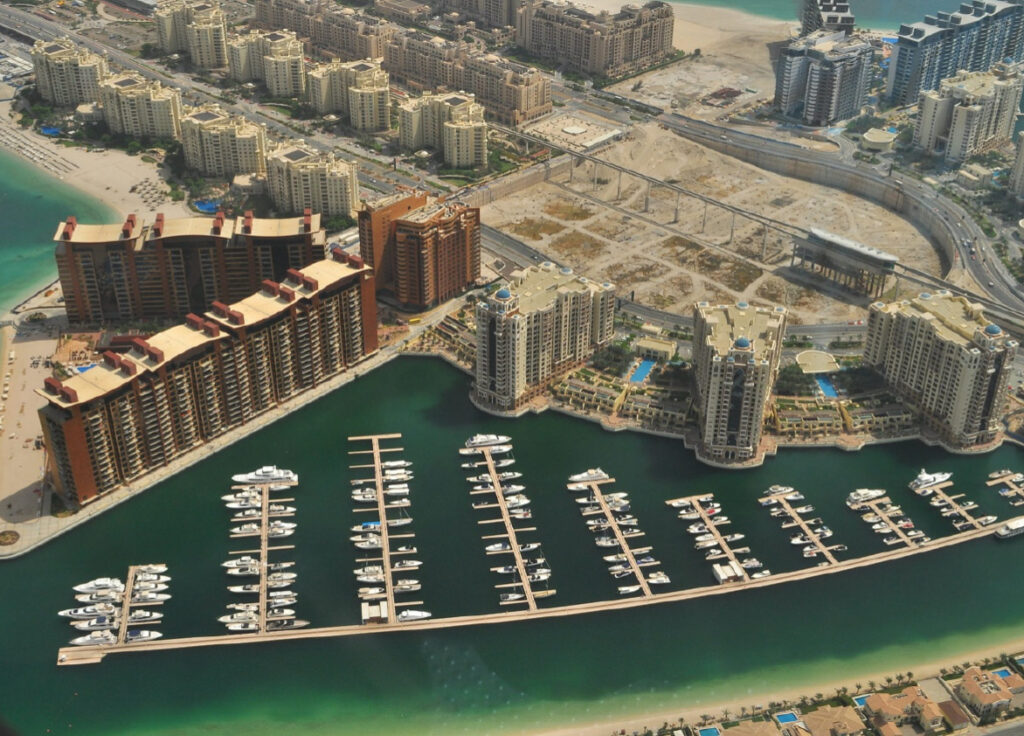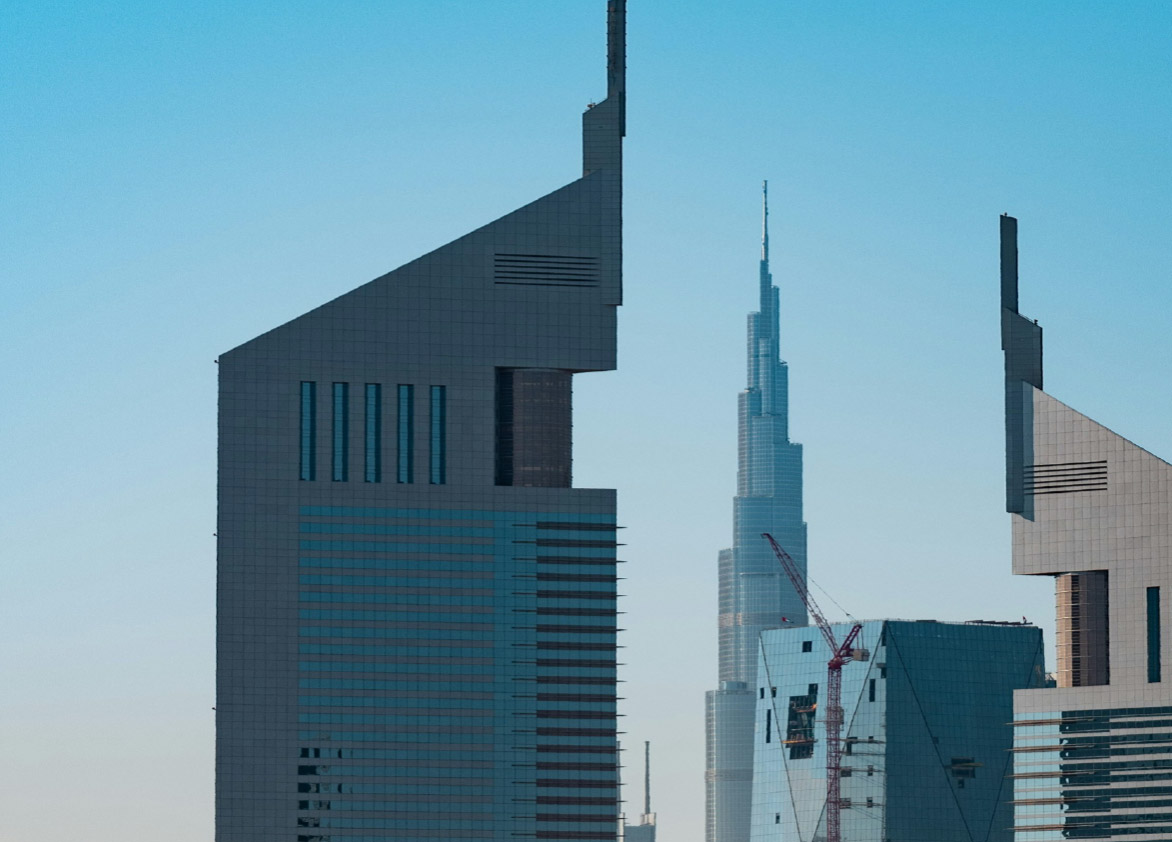Introduction
Dubai’s real estate market has experienced remarkable growth in recent years, attracting both local and international investors. As we progress through 2025, the market continues to evolve, presenting new opportunities and challenges for buyers and sellers alike. Understanding the current trends is crucial for making informed decisions in this dynamic environment.
Market Overview
1. Surge in Property Prices
Dubai’s real estate market has experienced a notable surge in property prices during the first half of 2025. According to recent, villa prices have increased significantly by approximately 32.2%, reflecting a strong demand for larger, luxury homes in the city. Conversely, apartment prices have seen a slight decline of about 1.9%, which analysts attribute to an increased volume of sales in more affordable and mid-range communities. This trend suggests that buyers are diversifying their preferences, favoring villas and townhouses that offer more space and privacy in the post-pandemic environment. The shift also reflects broader demographic changes, with families and investors seeking properties that support lifestyle changes such as remote work and home-based leisure. Overall, this price movement highlights the dynamic nature of Dubai’s real estate, where different segments respond differently to market forces and buyer priorities.
2. Increased Transaction Volumes
Alongside rising prices, Dubai’s real estate market has witnessed a surge in transaction volumes, signaling growing investor confidence. In July 2025 alone, the total value of property sales reached an impressive 65 billion AED, a figure that underscores robust market activity and heightened interest from both local and international buyers. This volume growth reflects Dubai’s continued attractiveness as a global real estate hub due to its strategic location, world-class infrastructure, and investor-friendly regulations. Additionally, government initiatives such as long-term visas for property investors and streamlined property registration processes have contributed to increasing market liquidity. High transaction volumes also indicate an active resale market, providing more opportunities for buyers and sellers to negotiate competitive deals. This vibrant transactional environment bodes well for sustained market momentum throughout the year.
3. Projected Price Adjustments
Despite the strong upward momentum in the first half of 2025, some market experts and rating agencies are forecasting a moderate price correction in the near future. According to Fitch Ratings, after a remarkable 60% surge in residential property prices from 2022 to early 2025, Dubai could see property values decline by up to 15% in the second half of 2025 and extending into 2026. This anticipated adjustment is attributed to market forces seeking to rebalance after rapid price appreciation, along with potential external economic factors such as inflation, interest rate changes, and global geopolitical uncertainties. Industry analysts at LuxLiving.ae and Reuters support this outlook, emphasizing that while demand remains strong, the pace of price growth may slow, leading to more stabilized and sustainable valuations. For buyers, this forecast suggests that timing will be crucial—those looking for long-term investment may find buying opportunities during a correction phase, whereas sellers might need to adjust expectations to current market realities.
Key Investment Areas in 2025
To assist buyers and sellers in identifying promising investment opportunities, the following table compares key neighborhoods based on factors such as price trends, rental yields, and future development plans.
| Neighborhood | Price Trend | Rental Yield | Future Developments |
| Downtown Dubai | Increasing | High | Ongoing infrastructure projects |
| Dubai Marina | Stable | Moderate | Planned enhancements to public transport |
| Palm Jumeirah | Increasing | High | Luxury developments and amenities |
| Jumeirah Village Circle | Stable | Moderate | Upcoming community facilities |
| Dubai South | Increasing | High | Expo 2020 legacy projects |
This table highlights areas with strong growth potential, making them attractive options for investors seeking both capital appreciation and rental income.
Buyers & Sellers Perspective
Buyer’s Perspective
Opportunities
- Off-Plan Developments: Developers are offering attractive payment plans and incentives, making off-plan properties appealing for first-time buyers and investors seeking lower entry costs.
- Luxury Segment: High-net-worth individuals continue to invest in luxury properties, driven by Dubai’s status as a global hub for business and tourism.
- Sustainable Living: There is a growing demand for eco-friendly and smart homes, with developers incorporating sustainable practices to meet buyer preferences .
Challenges
- Market Volatility: Potential price corrections may impact short-term investments, requiring buyers to adopt a long-term perspective.
- Regulatory Changes: Staying informed about evolving regulations is essential to ensure compliance and avoid unforeseen costs.
Seller’s Perspective
Opportunities
- High Demand: The influx of international buyers and strong local demand provide favorable conditions for sellers to achieve competitive prices.
- Strategic Marketing: Leveraging digital platforms and professional networks can enhance property visibility and attract potential buyers.
Challenges
- Market Saturation: An increase in new developments may lead to oversupply in certain segments, affecting pricing strategies.
- Negotiation Dynamics: Buyers may seek discounts in anticipation of potential price corrections, requiring sellers to be flexible in negotiations.

Future Outlook
Looking ahead, several factors are expected to influence the Dubai real estate market:
- Economic Diversification: Continued efforts to diversify the economy beyond oil will drive demand for commercial and residential properties.
- Infrastructure Developments: Projects such as the Dubai 2040 Urban Master Plan aim to enhance connectivity and livability, positively impacting property values .
- Population Growth: An increasing population will sustain demand for housing, particularly in well-connected and developed areas.
Conclusion
Dubai’s real estate market in 2025 presents a dynamic landscape for both buyers and sellers. While opportunities abound, it is crucial to approach the market with a well-informed strategy, considering factors such as location, market trends, and long-term objectives. By staying abreast of developments and aligning decisions with personal and financial goals, stakeholders can navigate the market effectively and capitalize on its potential.
Frequently Asked Questions (FAQs)
Q1: What are the current trends in Dubai’s real estate market in 2025?
Dubai is experiencing rising villa prices, steady apartment pricing, and increased transaction volumes. However, experts predict a possible moderate price correction in late 2025.
Q2: Which areas in Dubai offer the best investment opportunities in 2025?
Popular investment areas include Downtown Dubai, Dubai Marina, Palm Jumeirah, Jumeirah Village Circle, and Dubai South due to their price trends, rental yields, and development plans.
Q3: How do off-plan properties compare to ready properties in Dubai?
Off-plan properties offer lower entry prices and flexible payment plans but carry risks like construction delays. Ready properties are completed, allowing immediate use or rental.
Q4: What should buyers consider before purchasing property in Dubai?
Buyers should define investment goals, choose the right location, understand property types, conduct due diligence, and be aware of legal procedures and fees.
Q5: Are there risks of price drops in Dubai’s property market?
Yes, some analysts forecast a price correction up to 15% in late 2025 and 2026 after rapid price rises. Long-term investment strategies can help mitigate risks.
Q6: How is Dubai’s infrastructure development impacting real estate?
Infrastructure projects like the Dubai 2040 Urban Master Plan improve connectivity and amenities, boosting property values and attracting buyers.
Q7: What role does economic diversification play in Dubai’s real estate?
Diversification reduces dependence on oil revenues, stabilizes demand across sectors like tourism, finance, and tech, and supports sustained real estate growth.
